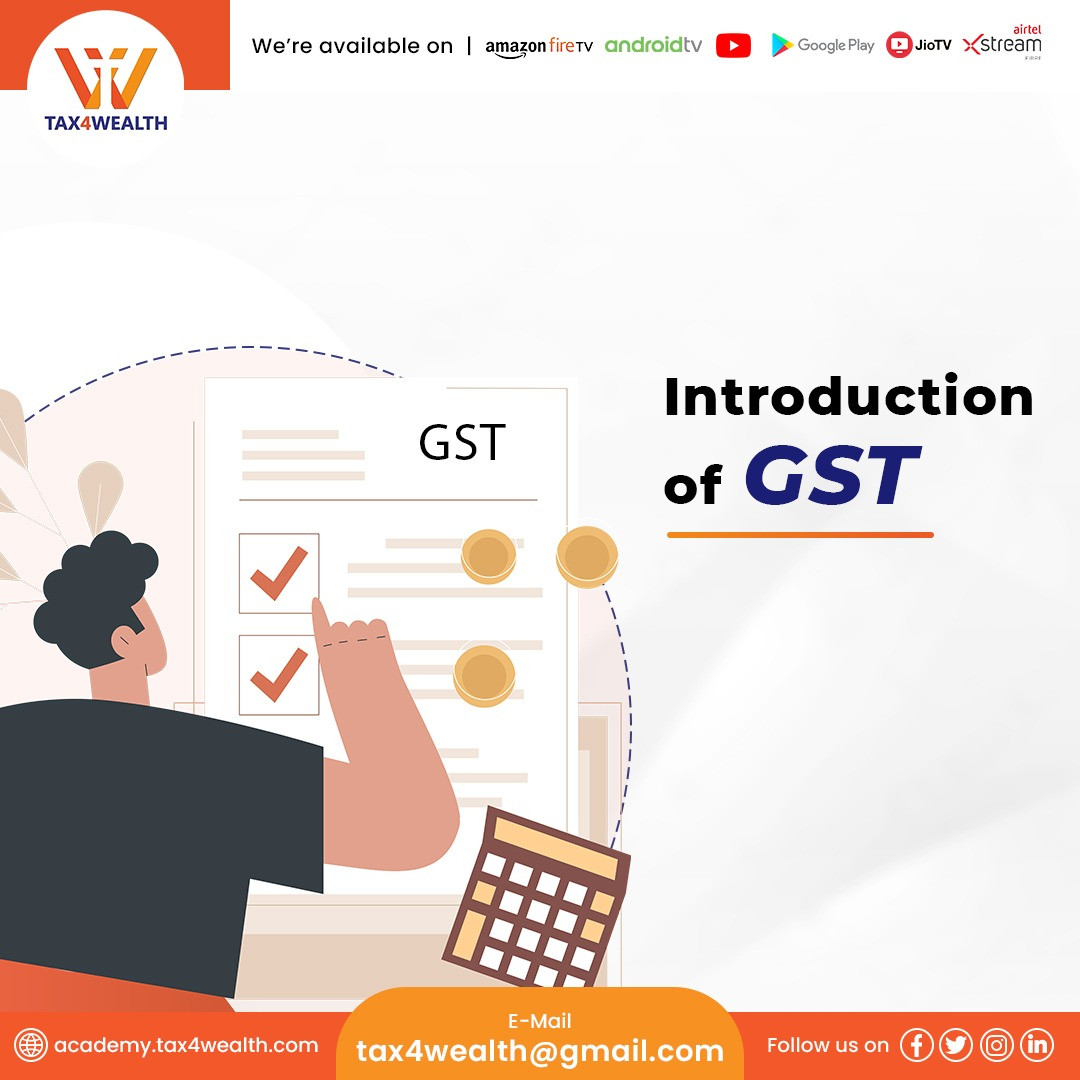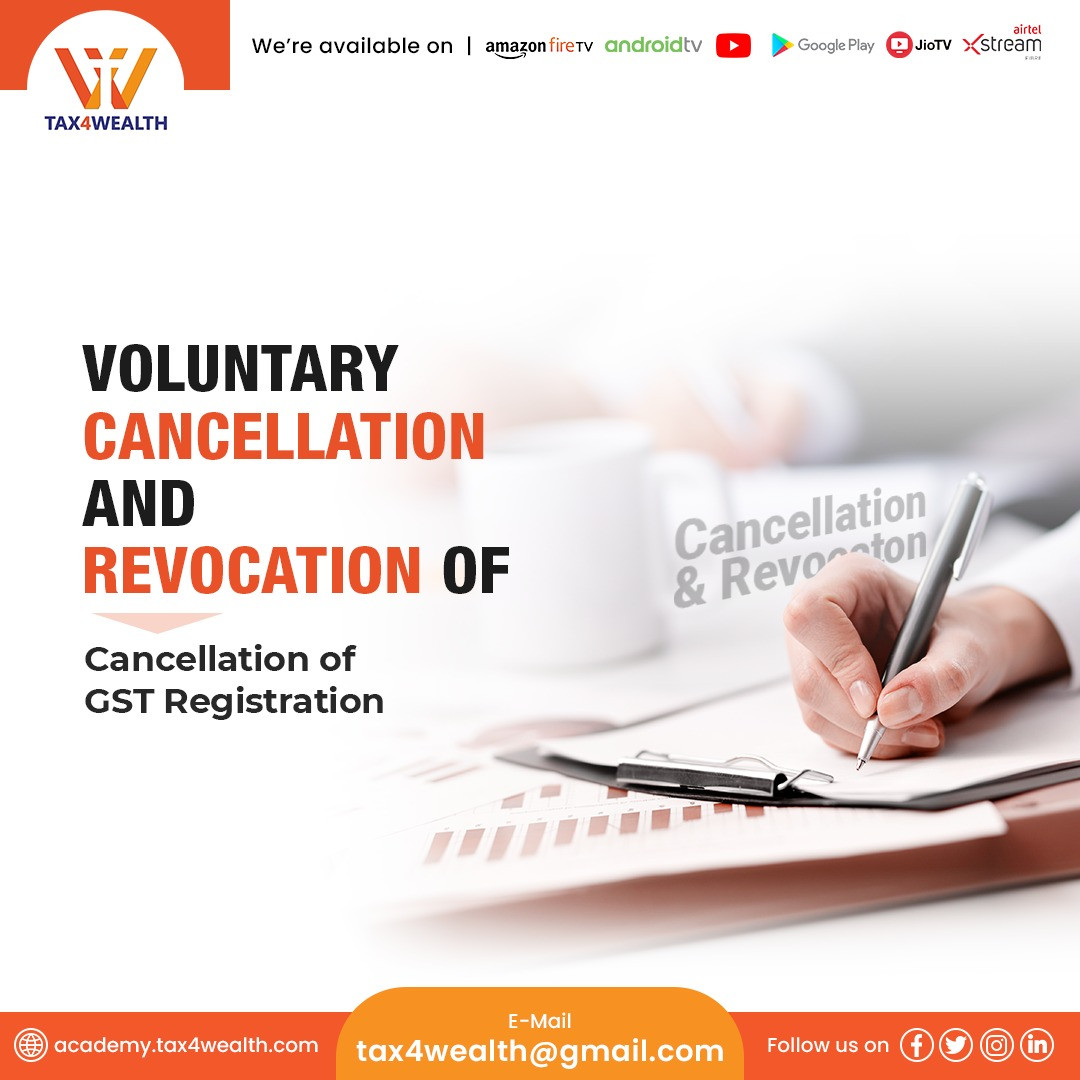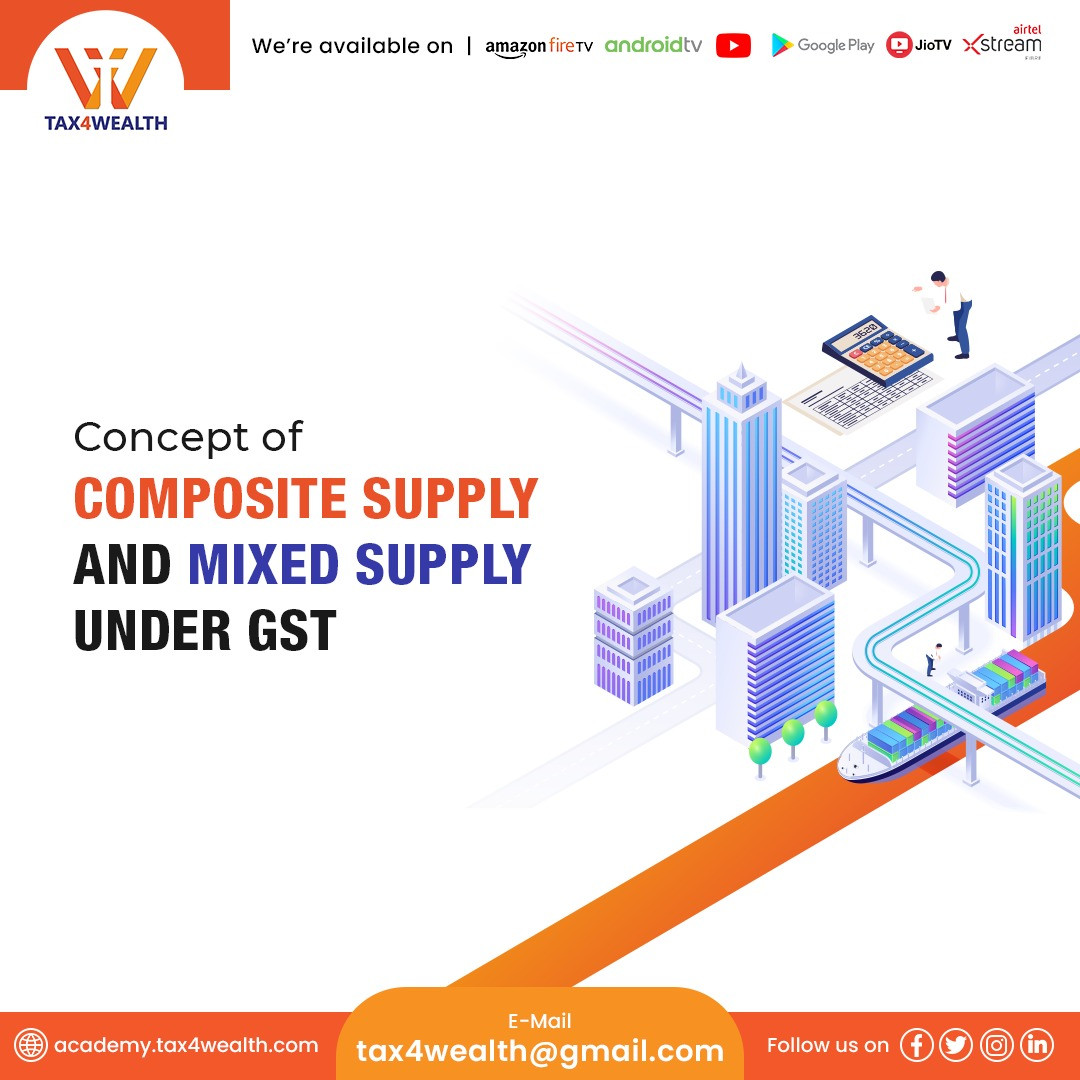
An Overview of GST- Goods and Service Tax
A Brief History of GST:
Goods and Service Tax(GST) was first introduced in France in the year 1954. It is now being used in over 160 countries across the world. In India, the concept of a common tax system for the entire nation was first discussed during the leadership of Honourable Prime Minister Shri Atal Bihari Vajpayee in the year 1999. After discussing it with his Economic Advisory Panel, Shri Vajpayee appointed the then Finance Minister of West Bengal, Dr. Asim Dasgupta as head of the committee to design the GST model.
After several years of design and development, and resistance from various political parties and people, the Goods and Service Tax was finally implemented in the entire country from midnight on July 1st, 2017. India follows the dual GST model which is also being followed in Canada and Brazil. Globally, the single GST model is more popular.
A unique opportunity for all youngsters and professionals eager to make a career in accounting and taxation by enrolling in the online GST Certification Course. This is a unique Certification that covers all aspects of the Goods and Service Tax, right from the basics to advanced features. The Course duration is 26 days, 2 hours of learning every day followed by half an hour of query resolution every day.
GST is the present and future of the Indian Indirect Tax System. The Government of India is committed to bringing all Goods and Services including Petroleum products, Electricity, and Alcohol for Human Consumption within the scope of GST in the foreseeable future. It is therefore very important for businessmen and professionals from all walks of life to know and understand this law so that they can conduct their businesses as per GST guidelines.
Learning and understanding GST can also be very rewarding for youngsters and professionals who are eager to make a career in accounting and taxation. Our online GST Certification Course will prepare you for a bright future in accounting and taxation.
Meaning and Scope of GST:
GST is a comprehensive, multistage, destination-based Tax system introduced by the Government of India on 1st July 2017. It replaced all previous tax systems in the country like Sales Tax, VAT, Octroi, Central Excise Duty, Service Tax, Additional Customs Duty, Surcharges, Entertainment tax, Entry tax, Purchase tax, etc.
It applies to the manufacture and trade of all goods and services across the country except Petroleum products and Alcohol for Human Consumption. Also, goods of daily consumption such as milk and dairy products, fruits and vegetables, and other groceries are currently outside the scope of GST.
It is called a multistage tax system because it is applicable to all participants at all levels in the manufacturing and sales process.
It is called a destination-based tax system because the ultimate tax burden is borne by the final consumer of the product or service. Under the GST regime, goods and services are divided into five categories. GST of 0%, 5%, 12%, 18%, and 28% is applicable depending upon the category of goods and services. Also, the Government of India has appointed a GST Council consisting of representatives from all States and Union Territories as well as the Central Government.
The List Of Online GST Certification Courses:
The following topics are covered in this online GST Certification Course:
1. Overview of GST. In GST Certification Course guide you through an introductory session about GST, what are its important features and benefits, and a detailed analysis of GST Provisions along with practical aspects of GST.
2. The second session of the Online GST Certification Course will cover topics such as Officers under CGST Act / SGST, Appointment of Officers, Powers of Officers, Delegation of Powers, Jurisdictional officer working out of jurisdiction, Authorization of officers of State or Union Territory as proper officer in certain circumstances, etc.
3. The third session covers sections of the GST Act pertaining to how the tax is levied and how the collection (Payment) of GST is conducted by the Government. The levy of tax refers to the imposition of the tax. This topic is thoroughly explained in the third session.
4. The fourth session of the Course covers the topic of the applicability of GST to a combination of products and services. Sometimes the final product or service may be a combination of individual components which carry different rates of GST. This topic is covered in detail in the fourth session.
5. The fifth session of our online GST Certification Course covers in detail, the exemptions under the GST Act.
6. GST is a tax that is applicable to the supply of Goods and Services. However at what point in the supply chain will the tax actually come into effect? This topic is effectively covered in the sixth session.
7. The seventh session of the GST Certificate Course covers the topic of Valuation of supply. Valuation or the value of supply refers to the consideration that is paid for the supply of Goods and Services.
8. Under the older tax regimes the credit mechanism for indirect taxes levied by State and Central governments resulted in a cascading effect of taxes thereby increasing the cost of goods and services in the hands of the final consumer. Under the GST regime, this cascading effect of taxation has been undone by the simultaneous implementation of GST by the State and Central governments. This topic is covered in detail in the eighth session.
9. The ninth session of our GST Certificate Course discusses in detail the procedure for registration, cancellation, and revocation of GST.
10. The tenth session covers the sections about Tax Invoice for Goods, Tax Invoice for Services, and Punishment and Penalties for noncompliance with the GST Act.
11. In the eleventh session the learning centers around the Maintenance of Records of Accounts in physical and electronic form by the Registrants. You will also learn about Records that have to be maintained by Godown and Warehouse operators and the tenure for which such records have to be maintained.
12. In the twelfth session you will learn GST Return Filing Course With Practical Examples.
13. In the thirteenth session you will learn about Payment of tax, interest, penalty, and other amounts, Utilization of input tax credit subject to certain conditions, Order of utilization of input tax credit, Interest on delayed payment of tax, Tax deduction at source, Collection of tax at source, Transfer of input tax credit, etc.
14. In this session you will learn about the Assessment of GST liability. This includes self-assessment, re-assessment, provisional assessment, summary assessment, and best judgment assessment.
15. This session will cover GST Audit. Audit means the examination of records, returns, and other documents maintained or furnished by the registered person under this Act or the rules made thereunder or under any other law for the time being in force to verify the correctness of turnover declared, taxes paid, refund claimed and input tax credit availed, and to assess his compliance with the provisions of this Act or the rules made thereunder.
16. In the sixteenth session you will learn about the Demand and Recovery of GST. It covers the topic of how the GST Officers determine reasons for willful or unwillful suppression of facts to evade GST.
17. The seventeenth session will teach you about who will be liable to pay GST under different situations.
18. In the eighteenth session you will learn about how to appeal against a demand to pay GST and also whether Central and State GST authorities can revise the order passed by their subordinates.
19. In this session you will learn about Penalties that can be imposed for non-compliance with the GST Act.
This article intends to give you a fair idea about what you will learn in Online GST Certification Course and how it will help you to manage your business taxation, deal with GST officials, and also build a career in Accounting and Taxation.
Related News
No comments yet, Be the first to comment.













